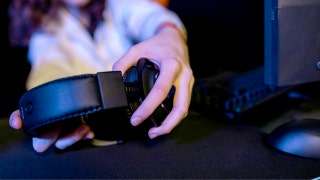Cars today are essentially four-wheeled computers, with hundreds of processors, radar, video cameras, GPS, and wireless data connections. So it's no surprise that buyers are increasingly focused on how well these rolling PCs work with their smartphones. It's also no surprise that tech and auto companies are duking it out over who gets to control that phone-to-car connection.
This week at its annual software developers' conference Google announced its widely anticipated Android Auto software. The company has been working for some time with automotive groups and the introduction mimicked Apple's earlier announcement this spring of its CarPlay software. Both approaches are essentially souped-up uber apps, designed to corral a few essential car-related functions--navigation, phone contacts, and streaming music services--from the phone and display them in a (hopefully) non-distractive way on the dashboard of compatible cars.
With valid concerns about driver distraction clashing with consumers' insistence on using their smartphones in the car, the initiatives are seen at least by tech companies and automakers as a way to reduce the danger of fumbling with phones in your lap while giving car buyers what they want: a seamless way to use their apps when behind the wheel. The concern, however, is that there will be a fight to control the dashboard, eventually leading to a dystopian future of Google and Apple cars with limited functions and choices.
But auto companies are determined not to let that happen.
At least initially, starting around the end of this year, there will be more options on connected dashboards, not fewer. Navigation, for example, is undergoing what Silicon Valley types gleefully refer to as a disruption. In new car systems, drivers will be able to choose between Apple's CarPlay maps (supported by TomTom), the automaker's faster, built-in navigation program (often based on a competing supplier, such as Nokia's Here), or launch Google's traffic-centric Waze app.
The same will be true of streaming music services, with traditional radio stations vying for your attention against Pandora, Spotify, TuneIn, and other apps. Loathe to eliminate options lest drivers complain, automakers appear to be throwing everything into the dash, hoping that consumers will sort it all out and pick the winners.
Google and Apple think they can do better. However, there are a few snags that they seem to have missed. Both apps--and again these are just apps, not full-fledged dashboard operating systems--rely on voice commands to keep drivers' hands on the wheel. But talking to your car with a backseat full of little leaguers or whiny commuters isn't very practical. Furthermore, most of us don't want our phone's screen and private details displayed on the car's dash for everyone in the vehicle to see.
Driver distraction is also still a concern. Neither system is on the road yet, but in demonstrations of the technology, what software engineers see as simple and easy tasks sometimes look absurdly dangerous, such as scrolling through lengthy music playlists or picking through restaurant recommendations. The moral is - what works on a smartphone screen doesn't necessarily work on the dashboard.
Fortunately, automakers are not about to cede control of the dashboard to Apple, Google, or even QNX or Microsoft for that matter. Neither Apple's CarPlay nor Google's Android Auto dictates how all this works in the car. Apple's CarPlay may restrict the number of apps you can use within its app, but how it is controlled will depend on the vehicle you're in. The new Volvo XC90 will have a large touch screen, while Mercedes-Benz disavows such controls in favor of physical buttons.
Automakers are also afraid--very afraid--of Apple and Google. That means they are continuing to develop their own apps and connected interfaces. So an Android phone owner will be able to run apps from their phone on a GM or Ford vehicle, without bothering to invoke Android Auto. How successful the car makers will be in this endeavor may depend on what apps you want on the dashboard. If Apple, say, is too restrictive and owners insist on using Pandora rather than Apple-owned Beats Music, then initiatives like CarPlay may fail.
For the moment, automakers have been quick to support Apple--and even quicker to support Google (more than 20 automakers have pledged Android support). The general consensus among big car companies is that buyers want these features and automakers want to sell cars, so they're stuck in an awkward alliance.
Brandishing his smart phone, Russ Johnston of Pioneer Electronics, which supplies in-dash systems to automakers, put it to me succinctly: "For now, we're a slave to this device."








































